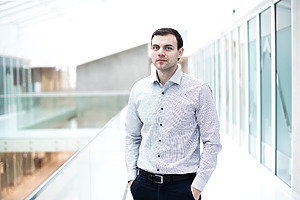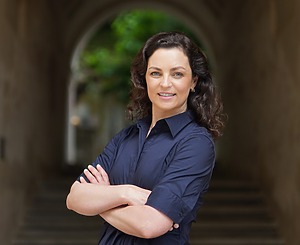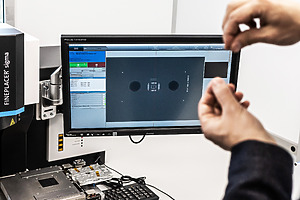International projects are great drivers for university-industry cooperation as quite often they involve companies. In such a way, industries can implement their ideas until the delivery of real products. Karoblienė provides another exceptional example of international collaboration – DNAMIC project. Together with Genomika company, KTU researchers aim to develop a stand-alone solution for archiving the data in DNA structures.
One-stop-shop for business enquiries
University-industry cooperation at KTU is facilitated by the National Innovation and Entrepreneurship Centre (NIEC), a one-stop-shop to all business enquiries. Bulota, the Head of KTU NIEC says that such a system saves time and allows discovering synergies.
“The university employs almost 2 thousand of staff; it would be nearly impossible for our customers to identify the exact person to answer their needs,” he says.
Today, one of the challenges companies need to adapt to is climate change. Although KTU works with very different industries, there is one common feature among them – usually, they seek innovation that would help developing more environmentally friendly, leaner, or more easily recyclable products. In IT solutions, those based on machine learning and artificial intelligence algorithms are among the most sought after.
The Head of KTU’s NIEC lists best practice examples: smart wearable wristband, developed in collaboration between KTU biomedical engineers, health practitioners and a Lithuanian IoT company, solar technology innovations of KTU chemists, that are patented in different continents, and many others.
“The R&D services can be divided into two groups – measurements and research. In the first case, speed and reliable data is important, in the second – expert knowledge and the possibility to develop a functioning prototype. Lately, the latter option has been expanded by our new facilities, M-Lab Prototyping Centre,” says Bulota.
According to him, only 10 percent of all enquiries is from outside of Lithuania; however, their conversion from enquiry to a contract is better than that of local companies. Approximately one fourth of all revenue for services comes from the contracts with foreign companies.
“Nowadays, the market doesn’t have geographical boundaries. For example, for several years we are successfully collaborating with one Indian company. We draw a contract with them during the pandemic, entirely remotely, even without any video calls – just over emails,” says the Head of KTU NIEC.
According to him, the Centre’s greatest achievement is the team of professionals, who understand the challenges of business. University-industry collaboration can take any form – from scholarships to R&D services. The first point of contact is always KTU’s National Innovation and Entrepreneurship Centre.




